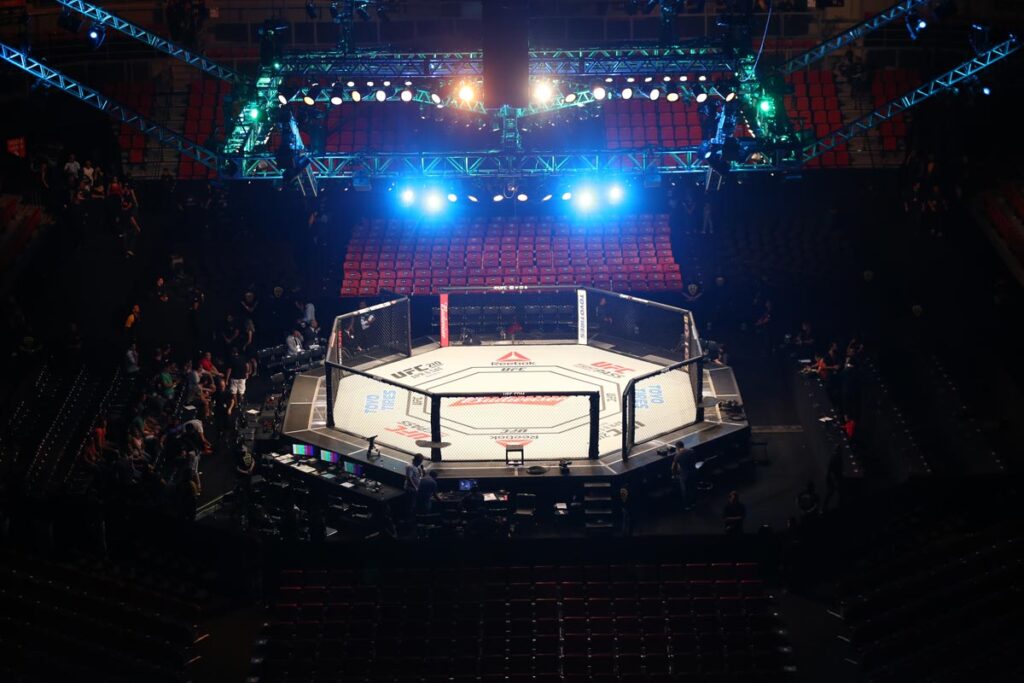Top Class Actions’s website and social media posts use affiliate links. If you make a purchase using such links, we may receive a commission, but it will not result in any additional charges to you. Please review our Affiliate Link Disclosure for more information.

Update:
- UFC parent TKO Group Holdings agreed to pay $335 million to end claims it suppressed fighters’ wages by as much as $1.6 billion.
- The settlement agreement, which TKO disclosed to the U.S. Securities and Exchange Commission earlier this month, came amidst mediation between the UFC and its fighters, Law360 reports.
- A group of fighters initially filed the complaint in 2015, arguing UFC’s then-parent company Zuffa stifled competition and grossly underpaid them.
- The $335 million settlement will reportedly be paid in installments over an agreed-upon period of time.
- The UFC previously argued it lacked the power to restrict its fighters’ pay when attempting to get the class action lawsuit dismissed last year.
UFC fighters lawsuit overview:
- Who: UFC fighters have been granted certification in their class action lawsuit against Zuffa LLC, the preeminent MMA event promoter in the United States.
- Why: The fighters allege the company used its market dominance to instill coercive contracts with fighters that allowed it to control them and pay them significantly less than their worth.
- Where: The UFC fighters lawsuit was filed in a Nevada federal court.
(Aug. 17, 2023)
Nearly nine years after a group of Ultimate Fighting Championship (UFC) fighters filed a class action lawsuit alleging preeminent MMA promoter Zuffa LLC stifled competition and controlled and grossly underpaid fighters, a judge has given the case the green light to class certification.
In an order filed Aug. 9 in a Nevada federal court, judge U.S. District Judge Richard F. Boulware II certified a class of fighters who competed in at least one professional UFC mixed martial arts bout in the U.S. between December 2010 and June 2017.
According to the lawsuit — first filed by six UFC fighters in December 2014 — Zuffa conspired to repress fighters’ wages by up to $1.6 billion through coercive, exclusive contracts and the purchase of rival promoters.
The alleged illegal and anticompetitive behavior has led to Zuffa’s widespread success and dominance in the MMA market, the plaintiffs allege.
Lawsuit alleges abusive contracts and stifling of competition
According to the fighters, Zuffa used exclusive contracts with specific provisions to retain fighters within the UFC, used its market power to render its fighter contracts effectively endless, and achieved a monopoly or monopsony by acquiring or driving out rival promoters.
Fighters are treated as independent contractors and are only compensated upon their participation in a bout, the lawsuit states. Zuffa based pay solely on whether fighters got matches and where UFC allegedly used a variety of coercive measures to avoid paying them.
Those measures include threatening to set up fighters with unknown opponents to hurt their rankings or matching them with dangerous opponents. Meanwhile, under a system where the clock didn’t start running on the end of a fighter’s contract until their last fight, UFC would allegedly deny or delay them a chance to fight and thus get paid. It would also allegedly suspend contracts “indefinitely” to lock fighters into a contract and keep them from coming out of retirement, even years later, to fight for competitors.
“Record evidence indicates both that these tactics were intentionally and consistently used by management to maintain contractual control of fighters and to send a message to fighters that they were essentially stuck with UFC for the life of their careers,” the judge said.
This is not the only lawsuit alleging anticompetitive behavior in the UFC.
In 2021, another class action lawsuit alleged the UFC underpays fighters, eliminates competition and engages in a number of anticompetitive practices.
What do you think about the certification of this UFC antitrust class action lawsuit? Let us know in the comments.
The fighters are represented by Eric L. Cramer, Michael Dell’Angelo, Patrick F. Madden, Joshua P. Davis and Mark R. Suter of Berger Montague; Joseph R. Saveri, Jiamin S. Chen and Kevin E. Rayhill of Joseph Saveri Law Firm LLP; Benjamin D. Brown, Richard A. Koffman and Daniel H. Silverman of Cohen Milstein Sellers & Toll PLLC; Bradley S. Schrager of Wolf Rifkin Shapiro Schulman & Rabkin LLP; Robert C. Maysey and Jerome K. Elwell of Warner Angle Hallam Jackson & Formanek PLC; William G. Caldes of Spector Roseman Kodroff & Willis PC; John D. Radice of Radice Law Firm PC; and Frederick S. Schwartz of The Law Office of Frederick S. Schwartz.
The UFC antitrust class action lawsuit is Cung Le, et al. v. Zuffa LLC, Case No. 2:15-cv-01045, in the U.S. District Court for the District of Nevada.
Don’t Miss Out!
Check out our list of Class Action Lawsuits and Class Action Settlements you may qualify to join!
Read About More Class Action Lawsuits & Class Action Settlements:
- Employee’s SpaceX lawsuit claims she was subjected to discrimination, sexual abuse
- Golden Corral class actions allege company failed to safeguard employees’ data
- McDonald’s class action claims restaurants don’t provide employees adequate breastfeeding space
- Boeing seeks dismissal of love triangle murder lawsuit















One thought on UFC to pay $335M settlement to resolve wage-suppression allegations
Add me